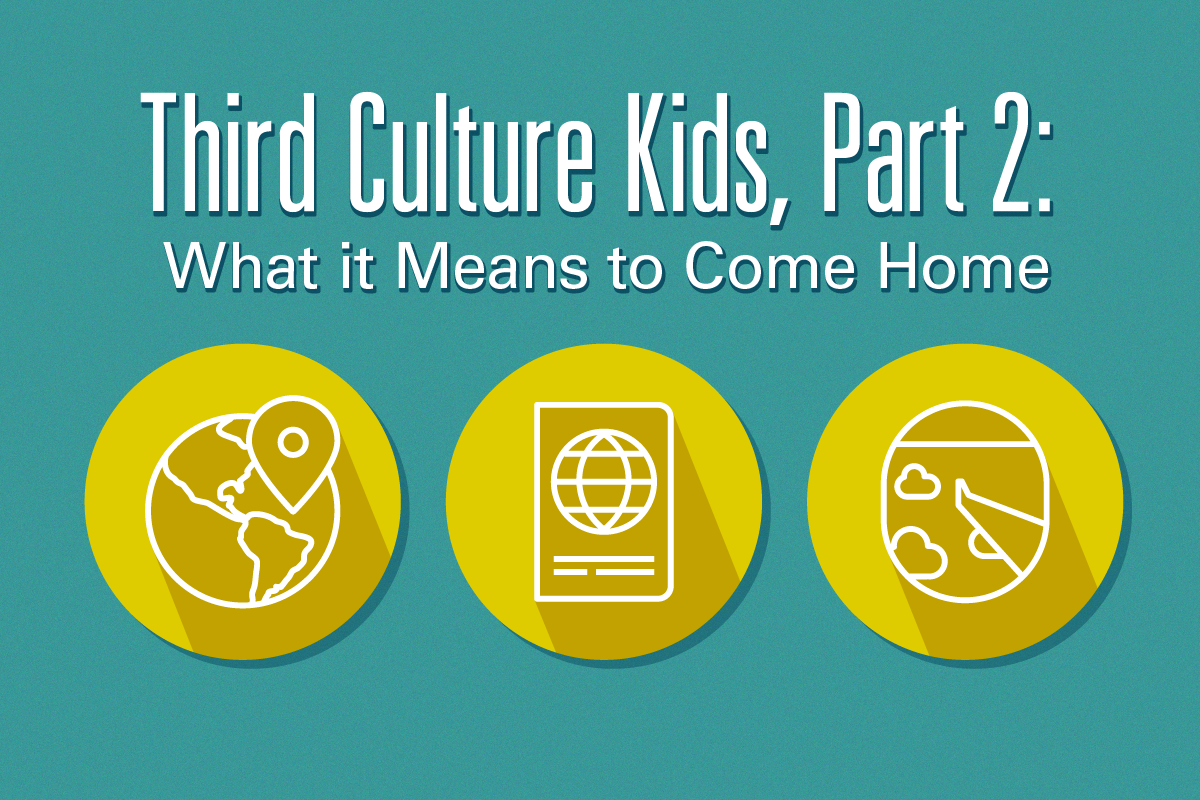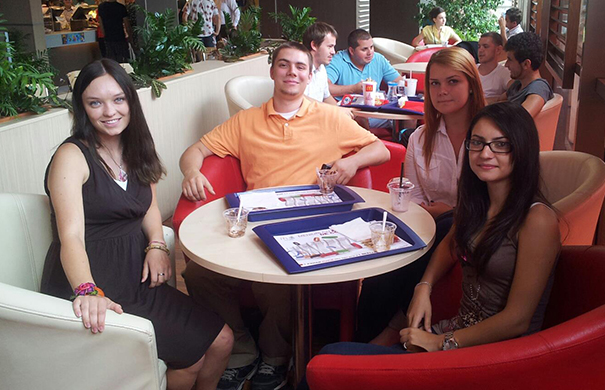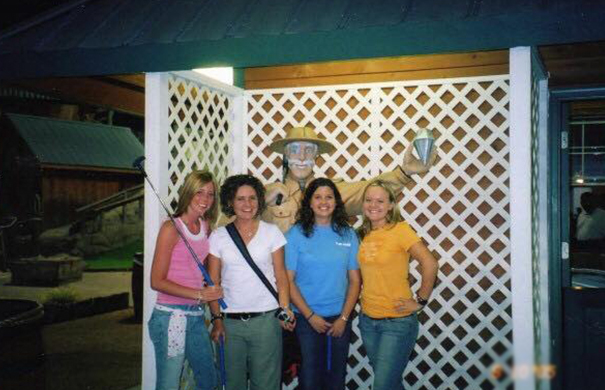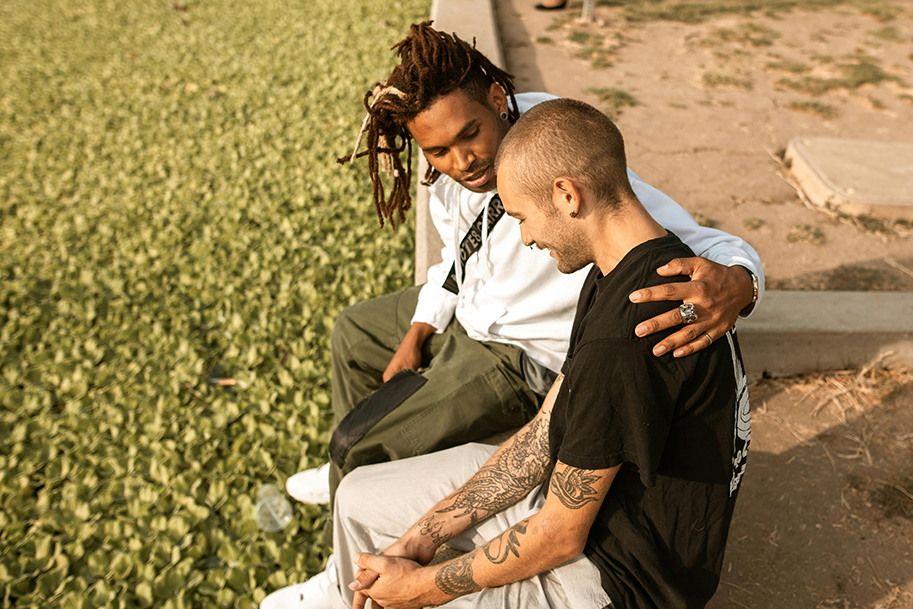
Missionary Life
Third Culture Kids, Part 2: What it Means to Come Home
May 22, 2018
by admin

This is part two of a discussion on what it means to be a third culture kid. Check out part one here!
I was 10 years old. I was in our apartment living room, sitting on our couch, surrounded by cardboard boxes.
I felt sick to my stomach and scared to start over. I told my parents I wasn’t getting on the plane.
I felt depressed because I knew I was just spewing nonsense. Of course I would have to get on the plane.
I felt angry because my parents seemed so giddy and happy to be going home — only, it wasn’t my home. It was theirs. In my mind, I was losing everything. And they had the audacity to be happy?
It wasn’t like I hadn’t known this was coming. My parents had always told my sister and me we would go back to the States someday.
But now, it was here. It was real.
My entire memorable life up to that point had been spent in Romania, not the States.
Yet somehow, suddenly, I was expected to call a foreign place home.
Being an Enigma Wherever You Go
For most third culture kids, transitioning to life in their passport country is more difficult than living abroad.
Expatriate kids aren’t like expatriate adults. To them, their “host country” is often the only home they know. And yet, they hear their whole lives that it’s not really home.
And since children don’t always know how to handle emotional complexities, each cultural shift impacts who they are in ways that are often permanent.
For instance, TCKs tend to feel out of place wherever they go. They may be American on the outside, but on the inside, they’re a mixture of something completely different.
And as a TCK, you’re always aware of just how much you stand out, especially in social settings with other Americans your age.

Brianna traveled back to Romania when she was older, but whether she was in America or abroad, she still struggled to find her cultural identity. Photo courtesy of Brianna Langley
Beth, TEAM’s Learning and Development Program Director, was born on the mission field in the Philippines and moved to the States after high school.
“Over time I realized that there was a whole swath of my life when the movies people know didn’t even exist to me,” says Beth Fussner. “… So, if there’s a conversation where people are talking about actors or things from that period, I’m like, ‘I have no clue what you’re talking about.’”
But the differences aren’t always as superficial as pop culture. Values and worldviews also differ drastically from culture to culture.
TEAM Director of Organizational Development Josh McQuaid was raised in Paraguay and says American concepts like gun culture and the emphasis on individual rights are completely foreign to him.
What’s worse is returning TCKs tend to feel pressure to fit right back in because they look the part. After all, their parents are American, right? Shouldn’t it come naturally?
But even if their parents are American, TCKs are not — at least not fully.
“The best way I can think of to describe it … is like you’re walking around with both of your arms cut off, only nobody can see that,” says Beth. “They think that you’re whole, but you’re not and you just can’t quite figure out how to do life in this new place because it’s so very different from where you’re from.”
Relearning Everything
“Figuring out how to do life” is one of the hardest obstacles for returning TCKs to overcome.
TEAM’s marketing specialist Emily Sheddan grew up as a missionary kid in Southeast Asia.
“I had trouble with the money because overseas it’s all colorful like monopoly money,” says Emily. “There would often be times, like in Walmart, when I would be paying with cash and the cashier would have to end up helping me. So, those times were a little bit embarrassing.”
Almost anything can trigger culture shock for returning TCKs because their childhood memories were all created in a different cultural context.
The Most Difficult Issue TCKs Face
But usually, the most difficult issue returning TCKs face is one of identity.
Culture plays a huge part in forming our identity. So when your childhood is composed of multiple cultures, figuring out who you are can be a challenge.
“I felt really lost [in the States]. Just thinking back on it — I still struggle,” says Beth. “I still have a hard time even talking about it because I get emotional about this really easily.”
The topic of cultural identity almost always hits a raw nerve for TCKs, which is something I can personally attest to.
When we moved back to the States, I struggled to make friends because I didn’t know how American kids acted. And I really didn’t know what to say when people would ask me where I was from.
It wasn’t until my parents and I discovered the term “third culture kid” and began doing research that everything started to make sense. I realized I was a hybrid — and that I would always be a hybrid. And at that point, I could move toward accepting that.
A Privileged Experience

While on the field, Emily kept up with American friends long-distance. This was one of the biggest things that helped her transition back to the States. Photo courtesy of Emily Sheddan
For all the obstacles it presents, there are ways to make the transition back to a TCK’s passport country easier.
Do research and prepare yourself emotionally for what’s coming. Or find a group of other internationals you can talk to once you return.
For Emily, maintaining long-distance friendships during her time abroad helped more than anything else.
“It definitely wasn’t as hard as some of my fellow MKs’ experiences, just because I did have relationships and friendships on this side of the ocean the whole way through my missionary time. I mean, like, kids and babies that I was in the nursery with would write me emails and letters and we would be pen pals,” she says. “We went to college together. … It was like I was coming back and I already had some friends.”
Regardless of the challenges, I wouldn’t give up the TCK experience for the world. So many good things in my life (my interest in culture and foreign affairs, my job at a global missions organization, etc.) are all a part of who I am because of the way I was raised.
I’ll never be able to thank my parents enough for that.

